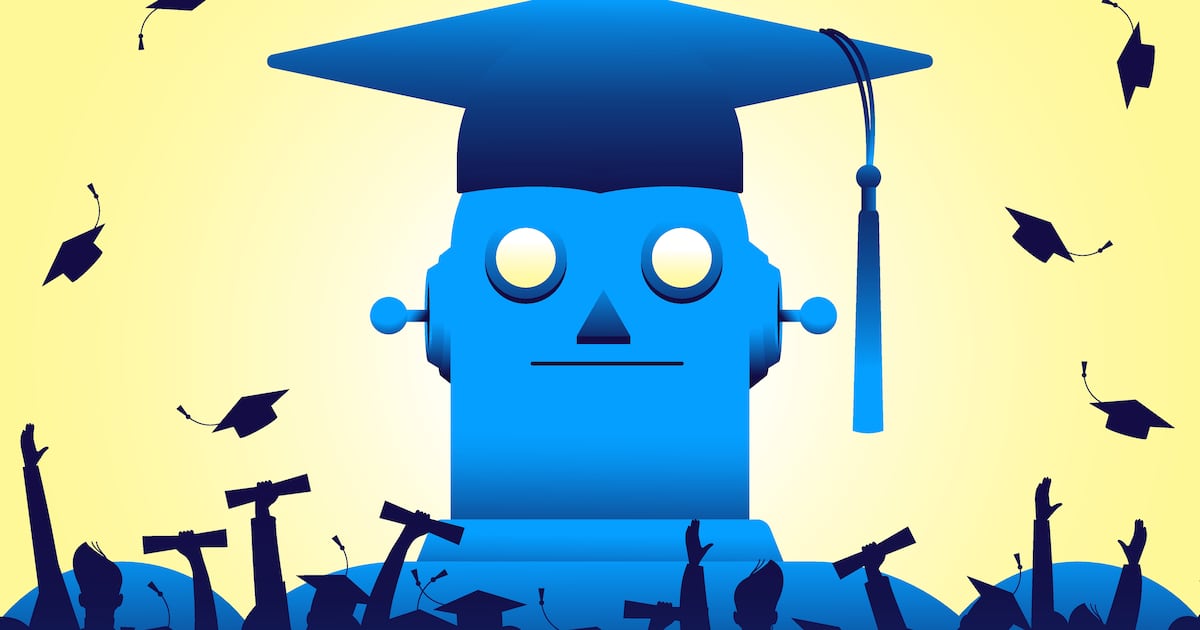The job search after graduating college, like any major life transition, can be time consuming and stressful. Figuring out how to tailor a CV, write a convincing cover letter and find a job you’re actually interested in is already difficult enough. Couple that with talk of Artificial Intelligence (AI) replacing jobs in certain fields, or being used throughout various recruitment processes, and the pressure on graduates can feel even heavier.
It can be difficult to understand how to navigate the use of AI in the recruitment process, whether that’s in deciding if you should use it to tailor your job applications, or figuring out how to engage with it recruiters that use it.
We chatted to Angela Burke, a career consultant with angelaburke.ie, who has also led graduate recruitment programmes for a global tech organisation and a Big 4 firm, about how graduates can navigate the use of AI in job searching and hiring practices.
How is AI changing hiring practices?
AI is “such a hot topic at the moment”, said Burke, who works with people at all stages of their careers, from students to executives. With certain open positions attracting thousands of applications, “some organisations will leverage AI to process applications quickly and match candidates to roles, ultimately leading to a quicker application response for candidates”.
[ Workplace tech: Apps grads need to know about, from CoPilot to CanvaOpens in new window ]
What does this mean for graduates?
“For graduates, the first filter is often digital, so it’s important to focus on tailoring your CV,” said Burke. This includes ensuring a “clear structure, relevant keywords and straightforward language so that AI systems and human recruiters can easily understand your skills and relevancy to the job”.
How are employers using AI in the hiring process?
Burke said “AI is a steep learning curve for everyone”, with many employers still figuring out how best to leverage it within recruitment. “Many will use it to assist with CV screening, chatbots for candidate queries, and sometimes automated video interviews,” she said.
Her advice to applicants is to ensure you are “keeping your documents clean and easy to scan” and to “be prepared to engage with digital platforms confidently”.
If you find yourself in an AI interview, “don’t be put off by the lack of instant feedback you would usually receive during an interview with a human recruiter in the form of non-verbal gestures, expressions etc”, said Burke.
She advises applicants to “prepare answers that show not only what you know, but how you think and collaborate and ensure they’re aligned to what the job spec shows is of importance.”
Can I tailor my CV to pass through AI applicant tracking systems?
With some open positions often receiving thousands of applicants, “many companies are using applicant tracking systems to filter CVs before they reach a recruiter” to manage the volume of applications, said Burke.
Angela Burke is a career consultant.
To increase your chance of passing this stage of the recruitment process, Burke recommends “mirroring key words and phrases from the job description, avoiding overly complex formatting, and keeping job titles and dates clear”.
“I’m always driving the point home to my clients that fluff distracts from the important detail, so consider what’s necessary to keep and remove the fluff.”
Should applicants use AI tools when preparing job applications?
“ChatGPT can be great for brainstorming ideas, gaining understanding and refining wording”, said Burke.
However, “your CV is your ticket to interview, which is your ticket to the job”, she said. “That’s not a ticket I’d like to be outsourcing to a bot, given your future is riding on it!”
What human qualities are still valued that AI can’t replace?
“Creativity, empathy, teamwork, communication, stakeholder management and problem-solving” are qualities that employers consistently look for, said Burke. “All of these competencies are incredibly important in the workplace.
“I’d also add attention to detail and accuracy. While AI is definitely useful, it’s not always accurate and needs our human eye to ensure no risky errors.”
Are we seeing AI replacing certain jobs?
Rather than wiping jobs out, “AI is reducing repetitive tasks and reshaping roles”, said Burke.
“If graduates want to get ahead, they could prepare by learning how AI tools are used in their chosen field. This way, you’re positioning yourself as someone who can use AI effectively rather than competing against it.”
What’s the best way to explore different career paths when you’re unsure what you want to do?
“First of all, I have to emphasise that very few people know exactly what they want to do in their early twenties upon graduating, so I really hope that takes the pressure off those putting that expectation on themselves,” said Burke.
“I’m a big believer that we can have many careers in our lifetime, and that usually, one naturally leads into the other.”
She said most clients she works with, “whether early or later in career”, are worried about making the wrong career decision.
“Whilst I support people to make the most informed decision they can, I really do believe that no experience is wasted and that each one clarifies what works and doesn’t work for you.”
She encourages graduates to speak to family members about what their working days look like, and “if you are in a position to, speaking to someone like myself, a career professional can be really helpful to take you out of your head and out of the overwhelm in order to reach a place of clarity”.

